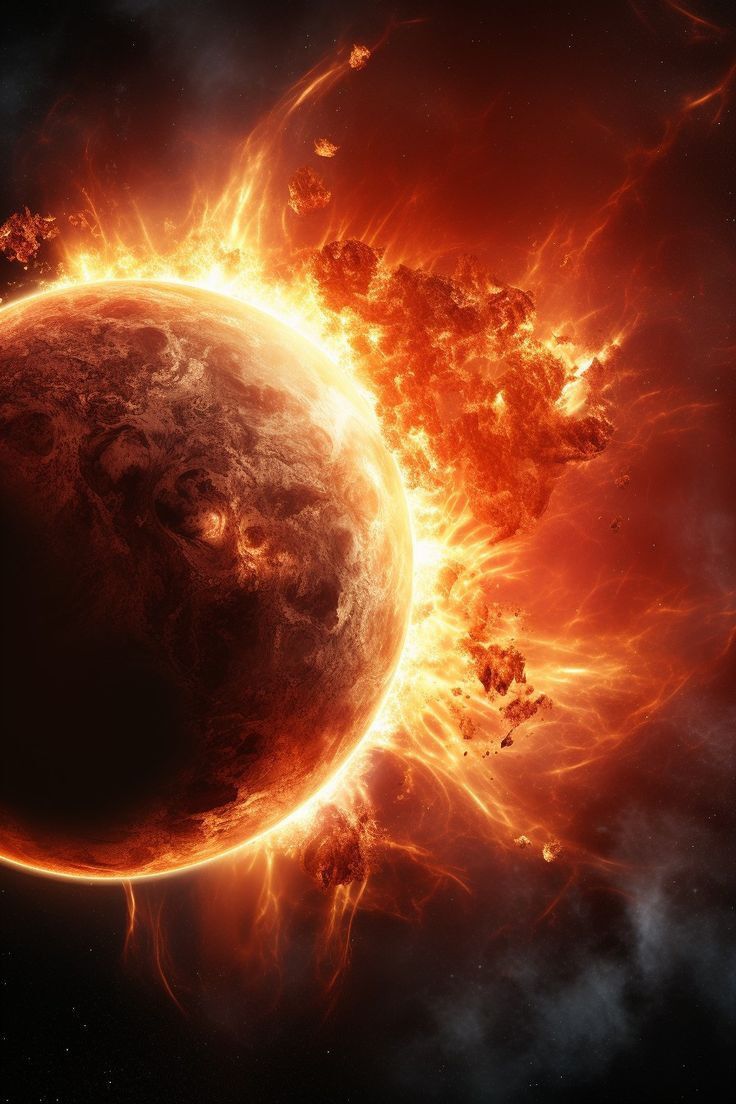Introduction
Imagine waking up one day to find the sun missing from the sky. This may sound like the premise of a science fiction movie, but what would happen if our life-giving star were to vanish without warning? In this blog, we will explore the devastating effects such an event would have on Earth and our solar system.
Immediate Loss of Light and Heat

The most apparent consequence of the sun’s sudden disappearance would be the loss of light and heat. Photons, the particles that make up light, take about 8 minutes to travel from the sun to Earth. Without the sun, the sky would instantly become dark, plunging the planet into an eternal night. The absence of solar heat would cause temperatures to plummet, leading to freezing conditions within hours.
Disruption of Earth’s Climate System
The sun is the primary driver of Earth’s climate, influencing temperature, precipitation, and weather patterns. Its sudden disappearance would cause a drastic and rapid shift in our climate system. The lack of solar radiation would halt evaporation, leading to a cessation of precipitation and the eventual drying up of Earth’s water sources. The atmosphere would cool rapidly, causing air currents to slow down and potentially leading to the collapse of the jet stream.
Impact on Ecosystems and Life on Earth
The loss of sunlight and heat would have catastrophic consequences for life on Earth. Photosynthesis, the process by which plants convert sunlight into energy, would cease, causing plants to die within days. This would lead to the collapse of the food chain, as herbivores would lose their primary food source, followed by carnivores and omnivores. Humanity would face immediate starvation, as our agricultural system relies heavily on photosynthesis.
Effects on Earth’s Magnetic Field and Atmosphere
The sun’s disappearance would also have significant consequences for Earth’s magnetic field and atmosphere. Solar wind, a stream of charged particles emanating from the sun, helps to shape Earth’s magnetic field. Without this influence, our magnetic field would weaken, leaving the planet vulnerable to cosmic radiation and solar particles that could damage our atmosphere and DNA. Additionally, the absence of solar wind would disrupt Earth’s upper atmosphere, leading to the loss of the auroras and potentially causing the atmosphere to collapse.
The Fate of the Solar System

The sun’s sudden disappearance would not only impact Earth but also have far-reaching effects on the rest of the solar system. Planets farther from the sun, such as Mars, Jupiter, and Saturn, would also experience rapid cooling and the loss of their atmospheres. Smaller bodies like asteroids and comets would be affected by the change in gravitational forces, potentially leading to collisions and alterations in their orbits.
Potential Long-Term Implications for the Universe
The sudden disappearance of the sun would not only affect our solar system but could also have implications for the universe as a whole. The sun’s energy contributes to the overall balance of energy in the universe, and its sudden loss could disrupt this balance. Furthermore, the absence of the sun might trigger a chain reaction of other stars in our galaxy experiencing similar fates, leading to a rapid cooling and darkening of the universe.
Conclusion
The sudden disappearance of the sun would be a cataclysmic event, leading to the rapid extinction of life on Earth and drastic changes in our solar system. The consequences of such an event would be both immediate and long-lasting, affecting not only our planet but the entire cosmos. While this scenario may seem far-fetched, it serves as a stark reminder of our dependence on the sun and the delicate balance that sustains life in the universe.

